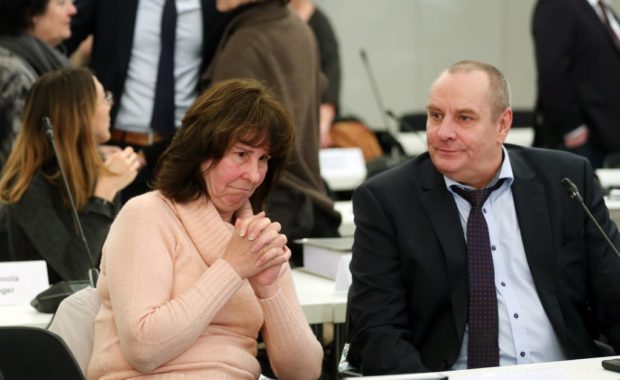BERLIN (AP) — A German court on Monday closed a trial over the mass panic at the 2010 Love Parade techno music festival in which 21 people died, ending the proceedings without a verdict after 2 1/2 years.

Joint plaintiff Edith Jakubassa (L) sits next to her lawyer Markus Darr in the courtroom on the fairground in Duesseldorf, western Germany, on December 8, 2017 ahead the beginning of the trial against Organisers of Germany’s 2010 Love Parade. Organisers of Germany’s 2010 Love Parade went on trial for their roles in the deaths of 21 young people during a catastrophic stampede at the popular street festival. Photo by Ina Fassbender / POOL / AFP
The Duisburg state court ended the trial after 184 court sessions, news agency dpa reported. Judges had proposed the move a month ago, citing restrictions caused by the coronavirus pandemic and the fact that the statute of limitations on the charges expires in July.
Three of the original 10 defendants faced charges that included involuntary manslaughter and bodily harm. They were accused of planning failures and not monitoring security properly at the event.
The July 24, 2010, crush took place in a packed tunnel that was the sole access point to the event in Duisburg, in western Germany. The victims included people from Spain, Australia, Italy, Bosnia, China and the Netherlands. More than 600 people were injured.
The trial opened in 2017. Prosecutors last year dropped their case against seven of the defendants; the three who were still on trial until Monday worked for event organizer Lopavent.
Those three defendants last year rejected a proposal to have charges against them dropped in exchange for a payment — a common event in Germany in cases where the gravity of a possible offense is deemed sufficiently small.
Prosecutors and the defendants agreed to the closure of proceedings. Relatives of victims — who joined the trial as co-plaintiffs as is allowed in German law — opposed it but their approval was not legally required.